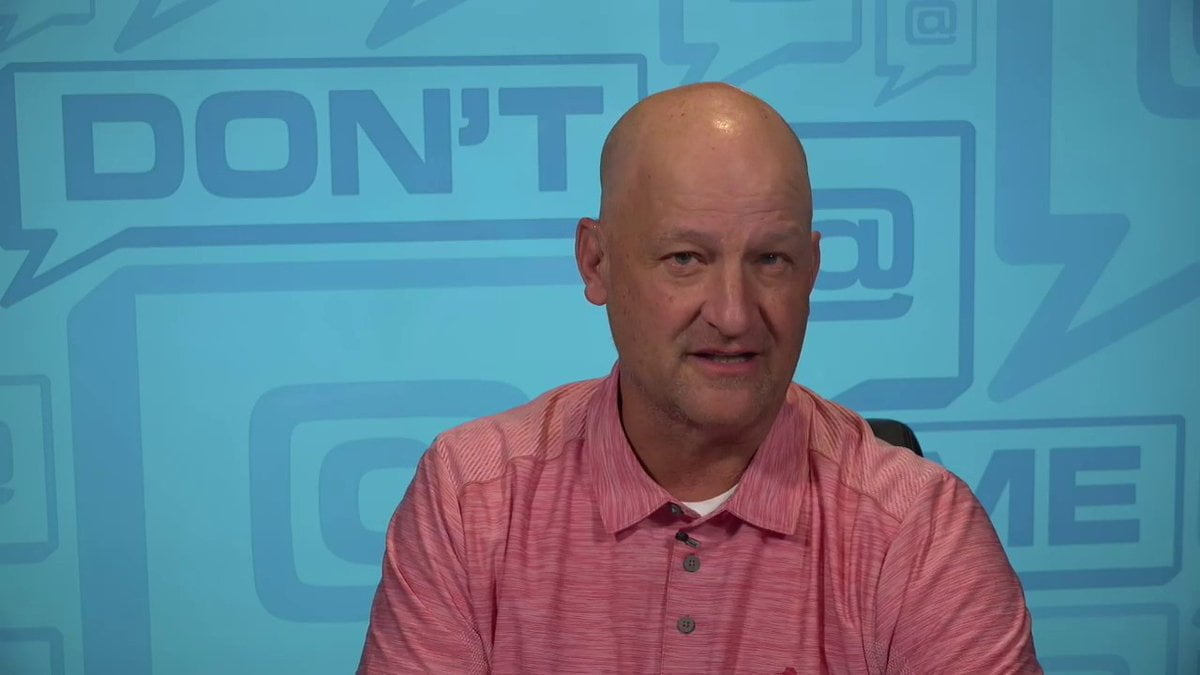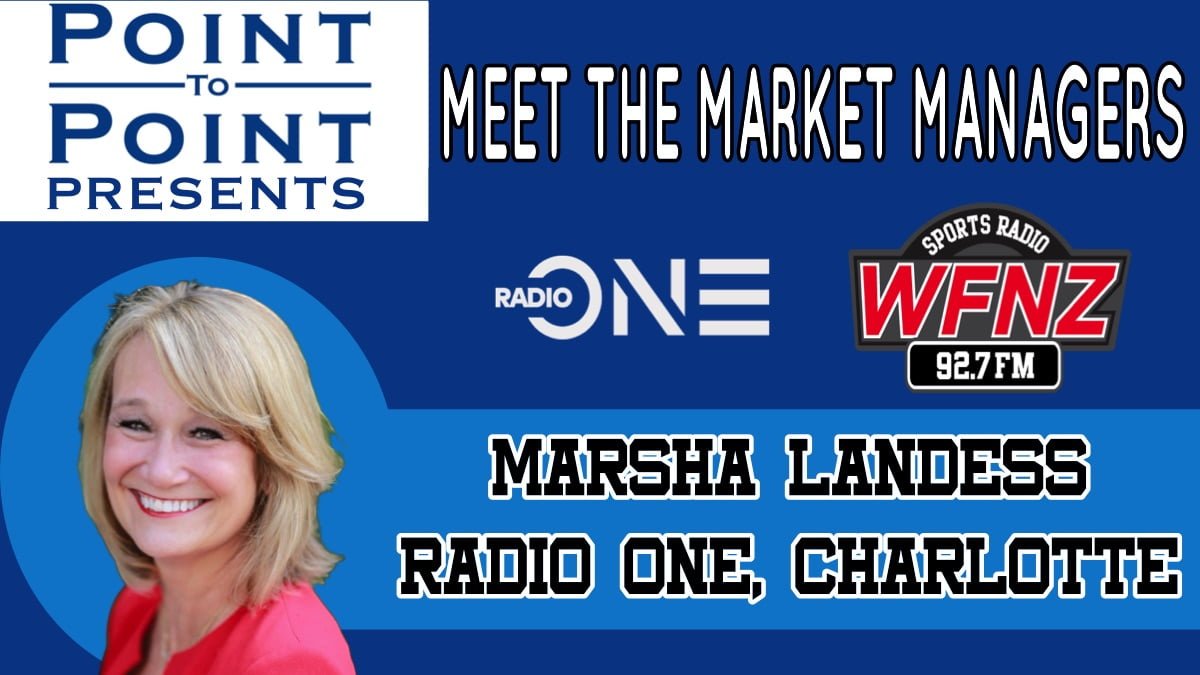If you want to make an omelet, you have to break some eggs. It’s a similar concept in radio and TV. If a host wants to be outspoken and unpredictable, it might result in royally ticking off some listeners along the way. This is something that OutKick’s Dan Dakich knows a thing or two about.
The funny thing is when Dakich’s detractors get revved up and say negative things about him, they often fail to notice one key element — they’re engaged with what he has to say. That’s the name of the game for a host. And there is no denying that Dakich has been flat-out captivating throughout his career.
But what about the times Dakich makes a mistake and says something regrettable? The former Indianapolis radio host describes his stance on apologizing. Dakich also talks about his quest to be a greater villain, being incredibly shy, and includes an awesome story about how the name of Don’t @ Me came to be. Enjoy!
Brian Noe: What do you think about signing your new extension with OutKick?
Dan Dakich: You know what, I’m thrilled. One of the things that I have enjoyed way more than I thought, or I didn’t even imagine, was being on a team. It’s funny, I’ve got about five people that are with me every day and they’re just great. It’s just wonderful people. Everybody is on the same page, whether on a broader spectrum with Clay, or whether it’s Jonathan Hutton and Chad Withrow or Tomi Lahren. Now Charly [Arnolt] is going to join us. It’s really fun.
It’s been a great experience and I was thrilled when they came to me. My contract wasn’t up until September, and they came to me a few months ago about an extension. Obviously, I was honored and flattered that they wanted me around. I’m excited as hell and I’m having the time of my life, I really am.
BN: How does doing a show for OutKick compare to terrestrial radio?
DD: Yeah, that’s a great question. It’s more scripted. You’ve done TV so you know, it’s way more formatted. I didn’t know that initially. In fact, when I first started, I’m like, yeah, I don’t really need any of this scripted stuff. Not scripted in terms of what I’m going to say, but scripted in terms of the segments. Really with radio for years, I would have an idea and it was much more ad-libbed. This is ad-libbed, but it’s more structured because it’s streaming, it’s TV. It’s way different in that sense.
There are some shows where they call it writing the show. So basically everything you say is written. Mine is not. Mine is ad-libbed with parameters. We’re going to have Burgess Owens on, the congressman from Utah. My team gives me all the information and then I kind of develop what I want to say. It’s way more organized than the way I did local radio.
I was very, very ad-libbed with local radio to the point where sometimes somebody would hit me with a story literally before I went on, and I would lead with that and talk about it all day. This is way more scripted the night before and the day of.
It took me a minute to get comfortable because like I said, initially, I’m like, no, I know what I’m going to talk about. I think at first I kind of was like, yeah, I don’t need it. And then, pretty soon into it I’m like, okay, I do need it, but it doesn’t mean I like it. And now it’s like, oh man, this is the only way you can do it. Because again, I had never really done a TV show; I had never been the host on TV. It’s way different than doing it on radio, so it did take me maybe six weeks or so until I’m like, okay, I kind of got this.
BN: How would you describe your style and what you try to accomplish each time you do a show?
DD: I try to entertain. That’s kind of my thing. I’ve always said, look, I’m not a journalist. I’m not trying to break stories. I’m not Schefter. I’m trying to entertain you with opinion. I’m trying to educate. I’m not trying to be the Walter Cronkite journalist.
I figure people tune in to the radio, and they can be entertained in different ways. Like my abrasive style, sometimes that’s entertaining to some people, off-putting to others. Or if you’re joking about yourself and you’re telling a story, or you’re ripping somebody, that’s part of entertainment too.
Entertainment isn’t Bob frickin’ Hope up there telling jokes for 20 minutes. That’s kind of my personality, always has been from where I grew up. We’re sarcastic, and you had to have thick skin. That’s kind of what I’ve always been. When I got hired by Kent Sterling at the radio station, that’s what he told me to just be, so I’ve kind of gone with it.
I didn’t set out to be controversial, which I guess I am. I swear to you, you know how it is. People say, well, you’re a hot take guy. Everything I do is based on my experience, literally every single thing. Sometimes the experience is different than what the public wants to be true. People are so passionate about sports, or they’re so passionate about politics, that when it goes against what they believe, or maybe what they want to believe, it pisses them off. And so all of a sudden, I become controversial.
I’ll give you an example, one time Cassius Winston was playing. He was a senior. Staff at Michigan State said, you know, he’s gone through so much — I think it was the year his brother died — and he’s not in great shape. So I said on the air, once Cassius gets back into better shape, he’s going to blah, blah, blah. Oh shit, people are like “You called him fat. I can’t believe, here’s a guy who’s brother died.”
I didn’t call him fat, I just said what the coaching staff said. A couple of media guys crushed me. I’m like, man, that truth went against what the narrative was and so I become the hated and controversial when it’s just simply what I was told by staff.
BN: Some listeners and viewers consider a host apologizing to be a sign of weakness. What do you think about saying you’re wrong or apologizing if you screwed something up?
DD: I have no problem with it. And people that know me, know that over the years I’ve said, God, I screwed that up, so many times. I have no problem with that. My biggest problem with that would be if it were something that I wasn’t prepared for.
You know this, you get on a show and sometimes you like hearing yourself talk and you’re ranting, and the next thing you know, you say something stupid, and you’re like, ahh crap, I didn’t mean it that way. Or you got a fact wrong because your brain’s moving a million miles an hour.
I’ve never had a problem apologizing. I’ve never looked at apologies as weakness. I’ve always looked at it as something that you just should do. And I think many radio hosts, and I think people in general, look at it as weakness and don’t understand that it’s actually a way of connection. Saying I was wrong is a way of connecting with somebody on a more personal level than somebody just either not willing to admit it, or trying to make an excuse for it. I think it’s something you absolutely should do.
BN: Putting your current role with OutKick to the side, what has been the most fun you’ve had in your broadcasting career?
DD: I loved Mike Tirico, Allison Williams, Bart Fox, who was our producer, and Scott Johnson, who was our director on Tuesday nights. I loved the Monday night dinners. We would book to get to Iowa City or Michigan State, and my wife would come with me. We would go to dinner and we would laugh our nuts off and crack on each other. Occasionally, other guys from the truck would be there. I loved that so much.
We called it the last supper when Tirico announced that he was leaving ESPN and that he was going to go to NBC. It was the same thing with Jason Benetti on Friday nights. My wife thinks Benetti and I are America’s odd couple because he’s a liberal, I’m a conservative. He’s really, really smart. I’m pretty stupid. We’re just an odd couple and my wife would go bananas. I miss those things.
That was the most freaking fun. Other than playing or winning a big game as a coach, or anything personal with my kids and my wife, I’m not sure professionally I’ve ever had more fun than the night before with either Benetti and the crew, or the night before with Tirico and the crew.
BN: It’s funny, Dan, when you talk about laughing your nuts off and having fun at a dinner, it just makes me think that sometimes the way you’re perceived to be on the air, there are a lot of listeners that don’t really know you. Do you ever feel like you might know the radio version of me or what I’m banging on, but you don’t really know me?
DD: Oh man, all the time. I get people saying you’re so arrogant. I’m like really? If you really knew me, I don’t think there’s anybody that’s ever really been around me that would think that. I’m an incredibly shy person.
If I go to a party, my whole life, I sit in the corner. But I have these people tell me, oh, you’re so boisterous and you’re this and that, and I’m like okay. [Laughs] My mother gets a real kick out of it. She’s 87 years old and she listens every day.
But yeah, in my world — and I don’t mean to sound like I’m bragging or trying to make myself look good — but two things, one, money never really mattered to me, and two, I’ve always liked the relationship part of it. Whether it’s, I don’t know, whoever, the janitors at Assembly Hall. I knew all their names. I remember Kelvin Sampson walking up to me, he goes, how do you know all these guys’ names? I go, “Well, I play softball with that guy, play baseball with that guy.”
My wife’s fascinated by it too. Somebody will come up to her and go, I met Dan and he was really a nice guy. And she’s like, well, yeah, what do you think he’s a dick all the time? That kind of thing.
BN: [Laughs] When your mom listens, what do you think she likes the most about you, and likes the least about you stylistically?
DD: My mother, we call her “the holiest of women”. She’s a church lady. She goes to church and then of course at five though she’ll have a vodka and relax. But she doesn’t like when I go at people. She doesn’t like when I go at Chris Ballard or something like that. And she likes our bikes program. She loves our bikes program because she and I remember when I got a blue Sting-Ray Schwinn bike. I remember the Christmas and so she likes when I talk about my kids, my wife and our bikes program.
She hates it when I go overboard criticizing somebody because we quote, we’re all God’s children, Daniel.
BN: [Laughs] That’s good. I like that. Where did the name Don’t @ Me come from?
DD: You know, this is really high tech shit I’m gonna give you right here. I wanted to name it Sack Up because that is our family’s motto. My dad would be like, you fell down, sack the hell up, let’s go. Or the teacher’s too hard? Really? Sack the hell up, let’s go.
I guess FOX thought it wasn’t good, or dirty, or I don’t know. It was literally my wife, myself, we were in Nashville and a guy came up and he goes, hey Dan, we can’t really name it Sack Up. I go, okay. He goes, well, what do you want to name it? I looked at Leigh, my wife, I go, I always say don’t at me. He said, perfect, that’s the perfect name. Okay, so that’s how high tech we are on Don’t @ Me. There ya go.
BN: As far as your coaching background, what do you tap into when you’re doing a show?
DD: You got to dominate the mic as a coach. You can’t get in front of your team and be weak. You can’t be in front of your team and be reserved; you’ve got to dominate the room. That’s the biggest thing. I remember, I was talking to a class and I go, what do you guys think is most important? Well, knowledge, sure, you’ve got to study. One guy said, you gotta be loud. I go, well, let me put it another way, you gotta dominate the mic. Just dominate that microphone. And it’s the same thing in coaching. If you’re going to sell kids on a particular scouting report, you’ve got to dominate. That really is the main thing that I took.
The other thing is you’ve got to talk to the listeners like you’re coaching your team. I remember telling Urban Meyer before he was on FOX, he was on ESPN doing a noon Big Ten game. He calls me and goes, all right, man, what do I do? I go, well, you talk to your team. You explain like you’re explaining to your team. Those are the two things that I always say and I picked up.
BN: Going forward is there anything in particular that you’d like to experience or accomplish in the future?
DD: This is going to sound really stupid. [Laughs] You know how when people go give speeches at colleges, people riot. They attacked Tomi Lahren the other day, and people get all mad. I want to get to where people get mad if I’m giving a speech somewhere. How f–ked up does that sound, right?
One of the highlights, my buddy Bart Fox was our producer when the whole crowd at Michigan State chanted we hate Dakich one day because of some stuff I put on Twitter. Izzo talked about it after the game and all this crap. Well, my buddy Bart, when I call him, his ringtone is the crowd chanting, we, hate, Dakich. It’s unbelievable. And so I want to get that in the political realm. When I go somewhere, I want an assassination attempt. [Laughs] Or I want some crazy political zealot to go nuts on me or something.
And look, I know I’m on the wrong side of the media. I understand that, I get it. When something gets picked up, the piling on factor happens. With me, I can literally tell you when something happens, okay, Jeff Goodman is going to come out and be a pain in the ass. This guy’s going to get mad and I know the cast of clowns that are going to come out of the woodwork. I love it.
You said it earlier, just don’t go through life being anonymous, or not at least standing up or saying what you think because it seems boring to me if you do.
Brian Noe is a columnist for BSM and an on-air host heard nationwide on FOX Sports Radio’s Countdown To Kickoff. Previous roles include stops in Portland, OR, Albany, NY and Fresno, CA. You can follow him on Twitter @TheNoeShow or email him at bnoe@premierenetworks.com.







